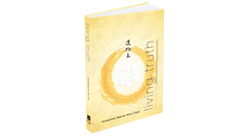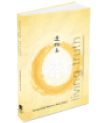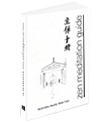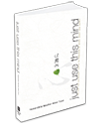
The common explanation of this teaching is always with regard to the written words of the Buddha, who taught what many considered as conventional truths - concepts and practices that addressed only particular situations. The sutras, the recorded teachings of the Buddha, has therefore been categorized into those containing conventional truths and those containing universal truth that is without exception. The recommendation is to always give more weight to the latter when trying to resolve perceived conflicts in the teaching. But I like to take this a bit further... While the Buddha had taught the universal truth in Northern India for forty-nine years, we are now attempting to attend that teaching through a written documentary. We are receiving only part of the teaching, the words, but we missed out so much that is unspoken in the Buddha's presence. Even if we were able to attend the teaching in person (through a miracle in time travel), we will still bring our own interpretations and prejudices through which we try to make sense of what he taught. There is no doubt that the Buddha had tried to reveal the universal truth to us in so many ways, but our restless mind just won't recognize it - even a thousand scrolls of sacred texts had not helped much. Why? Because the mind with which we try to recognize the truth is 'conventional'; the mind is constantly trying to filter, define, and judge everything, it won't see reality as it is. To rely on the universal truth, it is not just a matter of identifying one set of ideas as universal and another as conventional. We must first quiet down the restless mind that twists the Real into the Unreal, then we can see the truth in a single flower and smile.













Comments (5)
Jen:
Sep 05, 2012 at 09:53 AM
This is a very helpful reminder to stay calm and focused when life gets a little chaotic. Thank you for sharing!
Gary Gano:
Sep 13, 2012 at 11:25 AM
Am I correct to believe this is similar to the Japanese concept of mushin, or no-mindedness. In other words, free the mind of unnecessary distractions, fears, ego, emotions and so on, and instead focus singularly on the matter at hand in the present moment.
naishin:
Sep 14, 2012 at 07:07 PM
Yes. Per Master's teaching, calm mind leads to mushin and mushin leads to calm mind. Focus on what is really happening now. No definition. Only reality.
Jennifer:
May 25, 2011 at 04:35 PM
I have only recently been introduced to Buddhism and now realize how difficult it can be to quiet your mind. Through Master's writings and books, I have learned that there is another way and have been trying to use my thoughts and mind in a way that allows me to see the bigger picture, which I think at least in part is connected to the universal truth.
emptikloud:
May 26, 2011 at 04:27 PM
Certainly!! Beyond the surface appearance of Buddhism - the ritual, the architecture, the clothes, the food, the tea, the Oriental thing, the terminologies, etc - there is something that is truly beneficial and useful to everyone. That something is the universal truth. That is what you want to get out of Buddhism, not the packaging but the actual stuff inside. Master's teaching on the Mind is what I think the ultimate mobile device, it works anywhere, regardless of your cultural and social background. You can apply it to any aspect of your life and make a real difference. That's universal!
Add a Comment